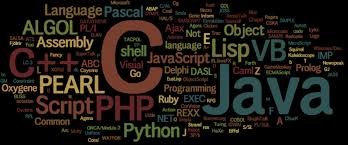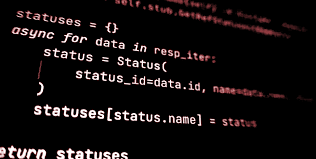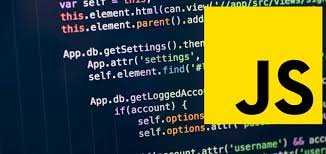Aprendiendo código #2. Learning to code #2 [ESP|ENG]
Aprendiendo código #2

Good morning dear friends of #Hive and #GeekZone, today I bring you this second post of the series I'm starting of "Learning to code". The first part can be found in my profile, although I will start posting here in GeekZone since I was told that it is a better community for the particular niche I am developing. Without further ado, today we will talk about programming languages, why there are so many of them and what function each one performs.

Que son y porque hay tantos?
Mainly, as we have already talked about, programming languages are, in a nutshell, different ways we have to communicate with a computer, in order to give it instructions to perform certain actions and/or tasks. The main reason why there are so many is because it is much easier to give instructions to a computer when the language is more specified for certain actions, instead of having a generic language for absolutely everything.

Los distintos lenguajes y niveles de abstracción
En este ámbito, existen distintos lenguajes de programación se distinguen según el nivel de abstracción. Mientras más bajo sea, más fácil será para el ordenador traducir estas instrucciones en lo que tiene que hacer, pero para las personas será mucho más complicado entender este lenguaje. Por otro lado, si este posee más nivel de abstracción, la persona que codifique se las verá más fácil a la hora de escribir código, pero para el ordenador, será más complicado interpretarlo, por ende, se necesitará mayor potencia en el dispositivo para ejecutar las acciones. Todos tienen sus pros y contras, ya será a tu gusto cual decidas usar según el objetivo concreto y tu comodidad.
Además, existen diferentes lenguajes según las tareas que quieres que haga el ordenador, para dispositivos pequeños, por ejemplo, los lenguajes de programación que no necesitan mucho para funcionar son los mejores, como "C" o "Assembly". Para dispositivos como laptops, tabletas, celulares, se requiere usar lenguajes que cumplan con tareas más complejas, sin tampoco exigir una barbaridad al dispositivo; por lo que se suele usar lenguajes con niveles medios de abstracción. Y normalmente para los servidores que guardan, ordenan o analizan datos se usan lenguajes con niveles más altos.
In this area, different programming languages are distinguished according to the level of abstraction. The lower the level of abstraction, the easier it will be for the computer to translate these instructions into what it has to do, but for people it will be much more complicated to understand this language. On the other hand, if it has a higher level of abstraction, the person coding will find it easier to write code, but for the computer, it will be more complicated to interpret it, therefore, more power will be needed in the device to execute the actions. All of them have their pros and cons, it will be up to you which one you decide to use according to the specific objective and your comfort.
In addition, there are different languages depending on the tasks you want the computer to do, for small devices, for example, programming languages that do not need much to work are the best, such as "C" or "Assembly". For devices such as laptops, tablets, cell phones, it is required to use languages that fulfill more complex tasks, without demanding a lot from the device; so languages with medium levels of abstraction are usually used. And usually for servers that store, order or analyze data, languages with higher levels are used.

INSTAGRAM |
|---|
 |